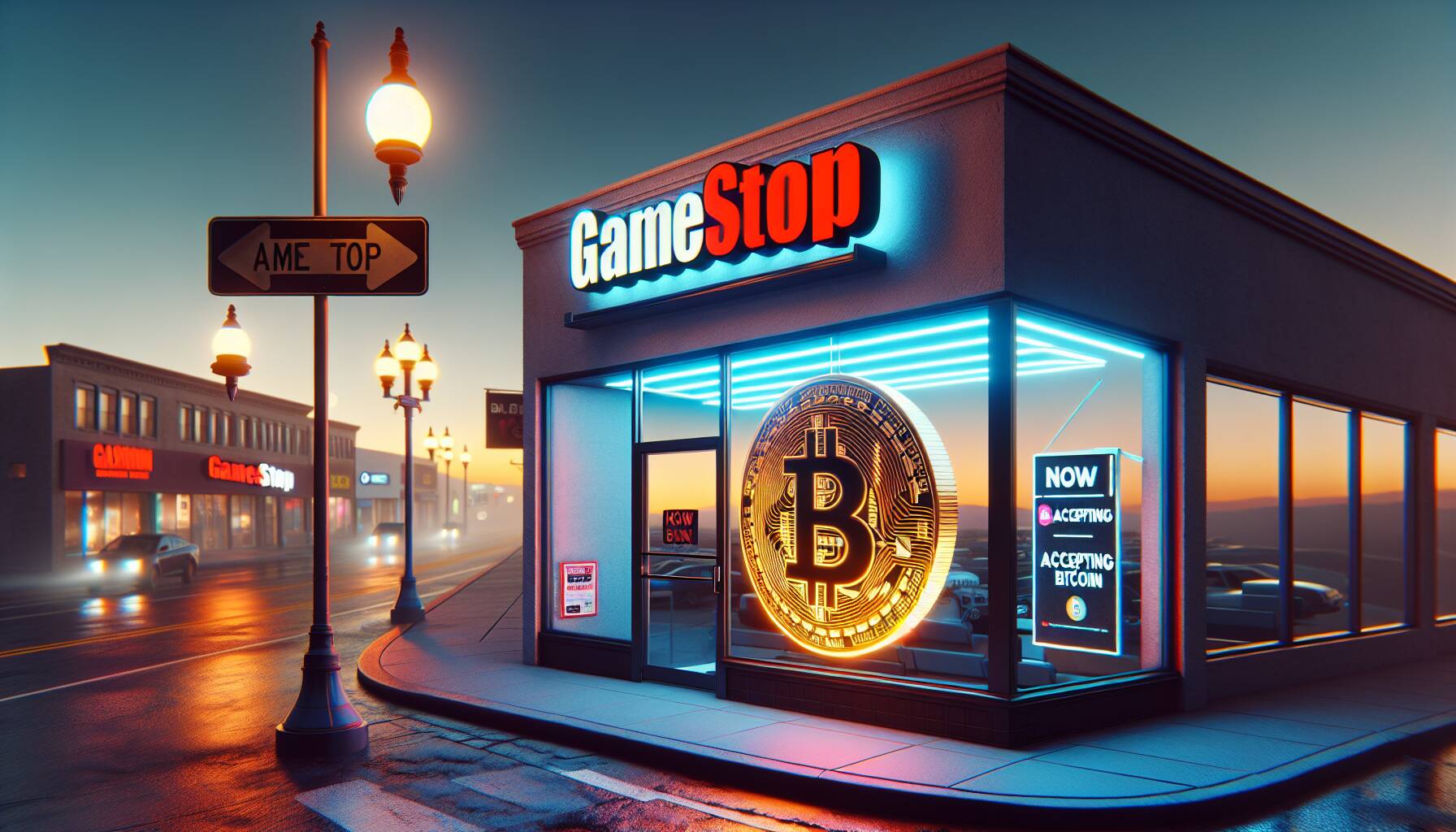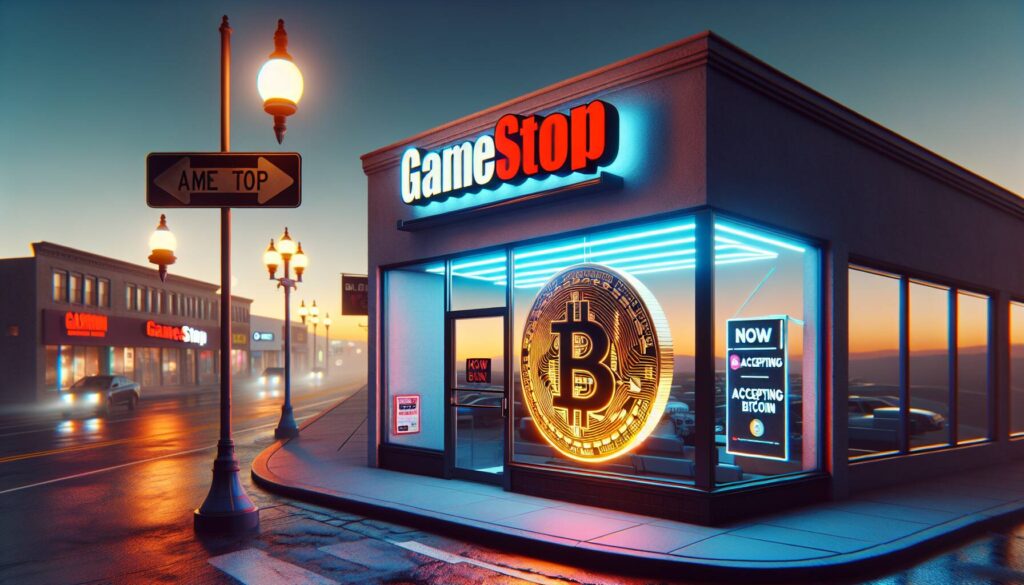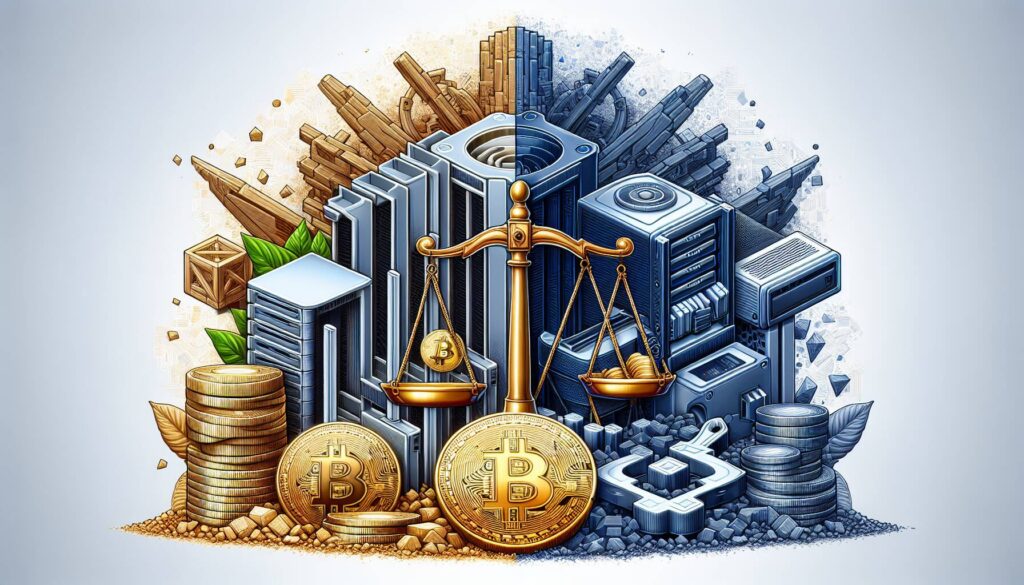In a bold move that has captured the attention of both investors and crypto enthusiasts alike, shares of GameStop (GME) surged by 16% on Wednesday following the company’s announcement to begin purchasing bitcoin (BTC) as part of its balance sheet strategy. This decision comes on the heels of the gaming retailer’s fourth-quarter earnings report, which revealed a substantial cash position of .8 billion.
CEO Ryan Cohen, who previously hinted at his interest in acquiring bitcoin, is now making headlines for this strategic pivot that aligns GameStop with the growing trend of corporate investment in cryptocurrencies. Joining him in this endeavor is Matt Cole, CEO of Strive Asset Management, who also advocates for the inclusion of bitcoin in the company’s portfolio.
“Chairman Ryan Cohen is likely to take a big bet on bitcoin as a balance sheet asset,” said Anthony Pompliano, founder of Professional Capital Management, noting that the bureaucratic nature of such decisions implies a significant financial commitment is on the horizon.
The specific amount and timing of purchases remain unclear, but the potential allocation has sparked a lively debate on social media regarding how much bitcoin GameStop will ultimately acquire. According to a poll by crypto influencer Michael Saylor, followers believe that to gain respect among Bitcoiners, GameStop must hold at least billion in bitcoin.
While GameStop’s intentions may be cause for excitement, industry insiders have raised questions about how aggressive the company will be compared to other notable players, such as Michael Saylor’s MicroStrategy, which has made headlines for its sizeable bitcoin acquisitions. Some analysts speculate that GameStop’s share price may remain resilient to the fluctuations of bitcoin prices since the company has yet to own any BTC as it sets out on this new financial adventure.
As this narrative continues to unfold, one thing is clear: GameStop’s foray into the world of cryptocurrency is likely to keep both the stock market and crypto community buzzing in the coming days.

GameStop’s Bold Move into Bitcoin: Key Insights
GameStop (GME) is making headlines with its decision to invest in Bitcoin, marking a significant shift in its financial strategy. Here are the key points relating to this development and its potential impact on stakeholders:
- Stock Surge: GME shares rose 16% following the announcement of Bitcoin purchases.
- Cash Reserves: The company reported having .8 billion in cash, indicating strong financial health and capacity for investment.
- CEO’s Vision: CEO Ryan Cohen has shown an interest in Bitcoin, suggesting a potential shift in the company’s investment strategy.
- Strategy Urged by Experts: Matt Cole, CEO of Strive Asset Management, supports GME’s move towards Bitcoin, highlighting institutional interest.
- Speculative Frenzy: Social media has ignited speculation about the amount of Bitcoin GME plans to acquire, reflecting high public interest.
- Future Plans Unclear: GameStop has not disclosed specifics on investment amounts or timing, leaving stakeholders uncertain.
- Significant Allocation Expected: Experts believe GameStop’s allocation to Bitcoin will be substantial, reflecting a serious commitment rather than a minor stake.
- Social Media Influence: Polls and discussions on platforms like X indicate strong community interest in how much Bitcoin GME should hold to gain respect among Bitcoin enthusiasts.
- Potential Long-Term Benefits: Investors might view this move positively, potentially stabilizing GME stock against Bitcoin price volatility, at least until acquisitions are made.
“You only put the time and energy to get the change to your investment policy if you are looking to put a material amount of your cash into bitcoin.” — Anthony Pompliano
This strategic pivot to Bitcoin could have significant implications for GME investors and the broader market, as it demonstrates an evolving view of cryptocurrency’s role in traditional business finance.
GameStop’s Bold Bitcoin Move: A New Chapter in Retail Investment
GameStop’s decision to delve into the world of cryptocurrency by announcing plans to purchase bitcoin marks a significant pivot for the gaming retailer. The news invigorated its stock, lifting shares by 16% as investors buzzed with speculation and excitement. In contrast to similar moves by other companies, GameStop’s approach carries unique advantages and challenges that could reshape its market presence.
Competitive Advantages: GameStop is banking on its substantial cash reserves of .8 billion, which bolster its capability to make significant investments in bitcoin. Unlike other companies, GameStop comes equipped with a strong online community that thrives on speculation and engagement. This fervent social media buzz could translate into ongoing shareholder enthusiasm, potentially sustaining gains as they await further announcements. Furthermore, GameStop’s entry into the cryptocurrency market could attract a new demographic of tech-savvy investors, eager to align with a brand that resonates with the ethos of the blockchain era.
On a comparative note, we see parallels with firms like MicroStrategy, known for its aggressive bitcoin acquisitions. However, GameStop’s intent is shrouded in uncertainty with no disclosed amounts or timelines for purchasing, which sets it apart from more calculated strategies observed in companies like MicroStrategy, whose plans have been methodical and transparent.
Competitive Disadvantages: The uncertainty surrounding GameStop’s bitcoin acquisition plan presents a double-edged sword. Lack of clarity could deter some investors who prefer concrete commitments. Furthermore, as GameStop navigates these waters, it risks exposure to the volatility that often plagues cryptocurrency markets; while some investors are currently excited, a downturn could easily dampen enthusiasm and lead to stock fluctuations that mirror bitcoin’s price swings. Basketball legend Mark Cuban famously referred to cryptocurrencies as “the future,” but the gaming retailer’s stock may be subject to wild speculative bubbles that could ultimately harm its reputation among more conservative investors.
The situation is especially precarious for traditional investors who may see this diversification as a gamble rather than a strategic move. The polls indicating that GME must hold at least billion in bitcoin to gain respect from the crypto community emphasize the pressure GameStop faces to meet such high expectations. Should they fall short of these benchmarks, the backlash could tarnish the brand’s image, particularly if it fails to generate the anticipated revenue from these digital assets.
In essence, GameStop’s foray into crypto could benefit not only enthusiasts of the brand but also attract newcomers looking for investments tied to digital currencies. However, it must tread carefully to avoid potential pitfalls that could alienate part of its investor base while navigating the still-volatile landscape of cryptocurrency.

















